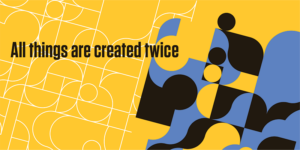by Al Ries & Jack Trout
Some of the 22 laws are surprising and counter-intuitive. Number 12 in particular: the Law of Line Extension. Almost every company that achieves success with a brand begins extending that brand with multiple products. Case study: 7-Up, the uncola. 7-Up was the most popular alternative to regular cola, and had 5.7% of the soft-drink market in 1978. It then introduced a half-dozen variations, and by 1993 its share was down to 2.5%. Today, who even knows where to get 7-Up? The company’s focus changed from a small, focused, profitable segment to a diffuse mix of flavors that keeps losing market share. On the other hand, Pepsi was a distant second behind Coke in the sixties when the company decided to narrow its focus. Remember the Pepsi generation? That campaign targeted teens exclusively, and within 20 years had closed the gap to 10 points.
The authors’ best advice is to not enter a mature market where one leader already dominates. Instead, create a new category where you can be the leader. They maintain that the human mind can only hold one idea at a time, and people stick with what they’ve been introduced to first. Federal Express owned “overnight.” Volvo owns “safe.” Crest owns “cavity fighting.” But other toothpastes can claim other qualities such as “whitens teeth” or “freshens breath.” Don’t play on someone else’s turf.
Another counter-intuitive law is that categories tend to split. (We tend to think that businesses consolidate.) For example, computers split into mainframes and minis. Then minis split into work stations and personals. Personals have split into laptops and tablets. Splitting a category is a ripe opportunity for a new company to establish itself as the leader in the new category.
Many of the marketing laws have to do with perception. They use a lot of examples from big corporations. However, these lessons can also apply to small business. Some important takeaways are to think long-term, narrow your focus, make sacrifices now for gains later. Also, use candor. People know when you are hiding something. Avis’s “we try harder” campaign was successful because they acknowledged being number 2.
This book is a quick read, but gave me a lot to think about.






